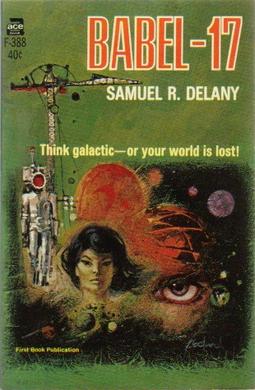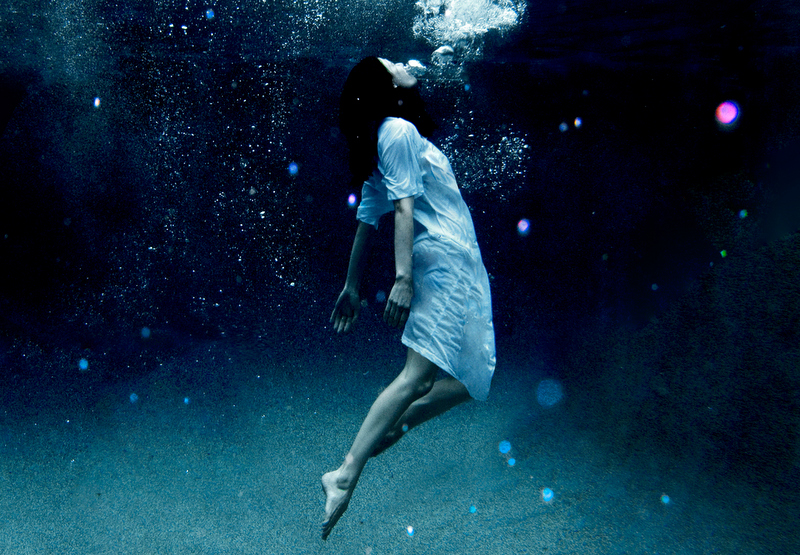This week I read "Memories of a Hologram Rose", which definitely reminded me of "cyberpunk". Since the story is driven by the invention of a device called the "ASP", we see the glimpse of a future where it rules almost all media and entertainment. It lets people escape reality by plunging them into an alternate, virtual space, and experience a world through another's recorded sensory memories. Of course, the implications of such technology leads many to be lost in these virtual realities, but can also serve as a bridge between people, letting them share experiences. This cyberpunk future is edgy, technologically advanced but not exactly a bright, shiny chrome. This kind of future is kind of rough around the edges, thinly masking the dark desires of humanity, which have become amplified with the new technology. In a cyberpunk future where human's safest sanctuaries- the mind- can be hacked and tricked, the darker implications of human nature come forward. But human nature is complex, and when explored through altered realities can only reflect certain sides of it, even though there may be thousand facets, like a shattered hologram rose.
On the other hand, Paprika, a classic Satoshi Kon movie, also explores this theme of the human psyche through the altered reality that is a dreamscape. However, it visually contrasts other films of its genre, like Blade Runner, in that is is saturated and colorful, teeming with movement and life. Even with the dark undertones of its narrative, the cover of bright visuals adds to its psychedelic feel, as if everything that was happening wasn't real. Meanwhile, the movie we viewed in class, Blade Runner, was dark, dingy, and hard boiled, truly befitting of its subject matter. Regardless of visuals, however, cyberpunk is more defined by its deep diving stories and hyper-technological future, truly Cyber and Punk.
Monday, October 31, 2016
Monday, October 24, 2016
Week Ten: Babel-17
For this week I read the novel Babel-17, to which I giggled when I realize that this treacherous language was literally named "babble" 17. A story where the mere knowledge of a certain language could manipulate you into betrayal definitely gets the point across: that words hold power. As we explore the power that language can hold, and the fiction of ideas, I couldn't help but notice "Fahrenheit 451" as the featured movie for this week. Though it was a book that I had read in early high school, Fahrenheit 451 wasn't faded from my memory. Both Babel-17 and Fahrenheit 451 emphasized the importance of ideas, and how its power could crumple societies and mesmerize thousands. In both works, it was the idea planted in the mind by words that grew to be powerful, even threatening. Ideas take hold, and they invade the mind, encouraging its host to act according to its wishes and commands. Babel-17 featured a language weaponized to control people, altering their thinking and subsequently, their actions. As we come to realize the true power of language, it becomes apparent that in our modern world, we are manipulated by words as well. With information spreading so quickly and uncontrollably, novels like Babel-17 and Fahrenheit 451 cause us to become aware of its power over us and society, especially the people who are able to facilitate and manipulate its content and spread.
Thursday, October 20, 2016
Week Nine: Space Opera and the New Frontier
The concept of a "retro future" is a defining trait of Space Opera and was the first factor that really appealed to me visually. The in-class movie "Forbidden Planet" displayed this trait perfectly, in all its mute colored, analog glory. In this type of future, technology is advanced, but still clunky and analogue, presenting an interesting juxtaposition between the past and the future. From the media we saw in class, space opera seems to capture the dramatic and passionate flare of typical romances, the imaginative creations of science fiction, and the action of face paced flicks of the time period. It is an amalgamation of popular culture all mashed into one, then thrown into the far future, with a setting that can only be described as future imagined in the past. For this week, I read "The Nine Billion Names of God", which has less drama and action than Forbidden Planet, but still held the qualities of retro-future and science fiction suspense. It dealt with existential dread more than Forbidden Planet, but was still reminiscent of its contemporaries. I also watched the movie for "The Martian" (not the book, sorry!) and was pleasantly surprised by its scientific accuracy and attention to detail. This particular story was set apart from its peers in that its drama was much less dramatic, for lack of a better word, and that its science was very well explained and rooted in reality. Space opera is a very broad genre, picking the good bits from many other genre favorites, so naturally, space opera itself would contain a broad range of pieces. The Martian fell on the more scientific side, while Forbidden Planet fell on the more dramatic side, and Star Wars was more action-y. However, all of these films contain elements of each other, and form the wacky genre of fiction known as Space Opera.
Monday, October 17, 2016
Week Eight: The Ocean at the End of the Lane
I still remember first reading Coraline as a child, and then eventually, seeing the marvelous stop-motion animated Laika production in theaters some time later on. In Coraline I experienced a vivid world through a child's eyes, where the supernatural was ubiquitous and a natural part of reality, and where adults seemed to occupy a different space entirely, as if they were a different species. Reading "The Ocean at the End of the Lane" reminded me of all the good bits of Coraline and then some more. In both novels, the line between "children" and "grown-ups" seemed very clear, and to our young protagonists, the distinctions were obvious and non-negotiable. The "grown-ups" don't acknowledge or experience the magic ever-present in the world, and are ignorant to powers that function beyond their physical reality. The boy occupies the contemporary world that we know and understand, but supernatural forces as old as time itself disturb the peace of his normal life on the lane. I particularly liked the idea of these old, otherworldly powers having to adapt to modern culture. The terrifying, canvas flapping monster that is Ursula Monkton presents herself as a beautiful lady to humanity, and gains the trust of the narrator's family. The motives of Skarthach of the Keep are reminiscent of ancient myths; she exploits the monetary greed of humans, feeding on the financial troubles of everyone living in the lane, and appealing to their material wants. When adapted into a modern setting where the supernatural are not taken as seriously, we see these myths take on different forms. Rather than appear as an ancient monstrosity, they assume identities like Ursula's. In Coraline, the Other Mother's world is appealing, it is pleasant and easily accessible by Coraline. Ursula, similarly, is extremely charming, and lives in the same house as the narrator. Both evils are close to home, and alluringly deceptive. In this contemporary fantasy world, the ancient evil is closer than we think, hiding right under our noses, and less ugly than we would think.
Monday, October 10, 2016
Week Seven: The Night Circus
Set in a whimsical and magical environment, the Night Circus plays out through delicate prose that touches on just the right senses to set the scene. Rather than tell a story in a chronological, straightforward manner, the novel skips around the timeline, revealing bits and pieces of its world at a time. I appreciated the sensory imagery immensely, and I personally think mood and atmosphere are a very important element in delivering a compelling narrative. Telling a story of two young magicians forced into a game waged by their masters, the main conflict arises when the two start to follow their own desires and begin defying their teachers. Magical stories of this nature are commonly read by young teenagers and even preteens and have a large impact on their culture and mindset in a very sensitive time in their life. Often, these stories of magic are familiar to us because the protagonists are also coming of age and going through major changes in their life as they pass from child to adulthood, just like the target audience of these stories. The Night Circus, in particular, dealt with the expectations parents impose on children, and the implications of what can happen if the child begins develop independence and stray from the path that has been laid out for them. Marco and Celia were both groomed to follow the interests of their respective "parents" (or rather, mentors), and must abide by the rules of a game waged without their consent. Initially, they follow the paths presented to them, obediently excelling in their studies and competing dutifully. However, as time passes, their own interests develop, and they fall in love with each other. Like a teenager rebelling against their parents as they find their own way in the world, Marco and Celia rebel against their masters, making a statement that children should not be the puppets of their parents. For young adults also trying to navigate their way in the world, stories like this remind them that they are not alone and that their journey is valid. They tell the experiences of a strange limbo nestled between childhood and adulthood, only adorned with magic and supernatural embellishments, accompanying young adults through the foreign, if not magical, land that is adolescence.
Subscribe to:
Comments (Atom)


